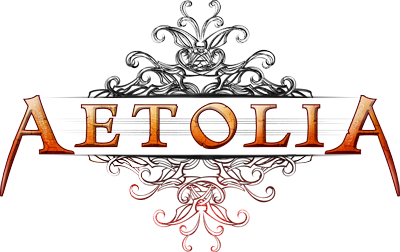4.14.1 Good Roleplaying
Questions asked in this file:
- How does someone in character deal with things that are out of
character?
- How can I make my roleplay even better?
Q: How does someone in character deal with things that are out of
character?
- Bugs or quirks in skills may be submitted via the bug command (HELP BUGS). Typos may be submitted similarily (HELP TYPOS). If it is being discussed with another player to verify what occurred, it is best to keep such conversations in tells to reduce the possibility of breaking the illusion of your role. If the situation is urgent, contact a Celani or an Admin person (HELP ADMIN) who may help you. Remember the Gods strive to maintain their roles as well. Unless it is a dire situation, stick to the TYPO and BUG commands.
- Out of role or OOC situations will usually arise when other players break their role. How you deal with such situations is your choice. You may ignore them, privately speak with the person in tells to point out or request they not break character.
- It is also possible to deal with OOC situations by contexualizing it IC as much as possible - acting like they are speaking nonsense. If they continue to be OOC, you might see if they simply do not know better. Newbies, for example, might not understand that they must be IC at all times. In that case, you could go OOC yourself and tell them something along the lines of: "(OOC: I would rather roleplay, sorry. Please read HELP ROLEPLAYING, okay? :))" - kind, but firm. if they continue to be OOC, it's considered reasonable to leave and cease speaking with them.
- On the other hand, some believe that a good roleplayer will not respond to OOC interruptions. After all, they are OOC and not part of what affects your character. If you are disconnected and suddenly return to the game, there is no reason to say "My soul was interrupted." We all know what happened; it does not need to be acknowledged. For those things that cannot be ignored, simply gloss over them with some kind of in-game, in-character action or explanation. For example, you may clear your throat after a typo or excuse yourself as clumsy and fatigued after you hit the wrong macro and perform an unintended, strange action.
- All of the above methods of handling unwanted OOC behavior have been recommended by roleplayers in Aetolia - choose whatever style suits you best.
- Sometimes, some things must be dealt with OOC for whatever reason, and in these extreme cases, most roleplayers prefer to keep them to tells and always bracketed by parentheses.
Q: How can I make my roleplay even better?
- Make your character feel like a real Aetolian person. Give your character flaws and weaknesses and let them make mistakes and learn. Allow your character to change over time. Real people change over the years, as different things happen to them and they learn more about themselves, and your character should, too.
- Use the setting of Aetolia to its full extent to create a character that could not exist in any other realm.
- Stay in character, even (or especially) when someone emotes that you are being pinned against a wall. Roleplay out of it, or even along with it.
- Treat non-player-characters ("mobs") as if they were just as real as other characters.
- Do not rely on game mechanics to define your reality and judgements. An example of this would be saying, "All vampires are responsible for their state because they must have AGREEd to become a vampire," where as a better player would not allow that mechanic to dictate the roleplay surrounding an embrace or how their character reacts to the circumstances of individual vampires.
- Use custom emotes (HELP EMOTES) to convey a greater range of action and emotion than is possible with predefined emotes. Anyone can SMILE, but a good roleplayer will EMOTE a smile with her personal features, and craft a more unique and specific expression.
- Be aware of your character in their physical space, and you will be able to more greatly enhance their role with the simplest of actions. Does your character like the rain? What does the ground feel like underfoot? What smells may be in the air?
- Along a similar line, pay more attention to detail. An average roleplayer makes good use of the MUD's predefined emotes to accurately portray their character's emotions. The excellent roleplayer frequently uses the EMOTE command to show his character's feelings, but in a more personalized manner.
- An average roleplayer will often simply say, "This is who I am," while a good roleplayer will demonstrate who they are through their actions. There is a difference between a vampire who plays the game with the attitude that "I am a vampire and I am evil because I am a vampire," and a vampire who plays his role by demonstrating and developing his capacity for various kinds of evil through his interaction with other characters.
- Some roleplayers believe it is poor form to use the ID number of a monster, or to ask someone in a public area to "doublewhisper" them to work on their "reflexes". They prefer to avoid slipping into OOC behaviour in public or referencing OOC behavior with thinly veiled euphemisms and synonyms. An example would be substituting the word "reflexes" for "triggers" as if it made such a discussion any more IC. They also suggest limiting or eliminating modern colloquiums from your speech ("newbie," "dude," et cetera). However, other roleplayers believe these IC terms for OOC matters are invaluable when discussing matters that cannot be avoided. For example, referring to the player as his 'soul' takes an OOC term and makes it IC. A good player does not 'logoff,' he 'departs from the realms.' He does not 'go on a vacation,' rather he 'embarks on a journey beyond Sapience.'
- React to the play of others with an open mind. Your reaction to the roles of others should not be to judge their play by metagame standards of what X guild/city/order members "ought to be like." Instead, react to situations like your character would react. Treat your role like a continual improvisation in which you play a part and keep it going.
- Some believe it's most important that your characters should appear to be consistent in how it behaves and how it reacts. Roleplay at the core is the person's ability to capture a convincing, enthralling role. It isn't the quality of your emotes, or the way you speak. It is how consistent you are with the personality (the role) you have envisioned for your character, and how well you remain in that character. An example of a typical failing in this area would be a person who plays a character that sits at one moral extreme, such as being a necromancer, but has an OOC friend who plays a character at another extreme, such as a Luminary, and the two characters freely associate without any kind roleplay to explain their interaction.
- Treat the world you are in like ... well, a world. Monsters are big and scary, ghouls smell bad, hidden people are hiding, and backbreakers really do hurt. Seeing a child get murdered is usually a traumatic event for real people, at least the first hundred times. After being stabbed ten times in the gut, would you just calmly sip an elixir as if it were a matter of course?
- Roleplay even when you don't have to, even when you're sure you're not being seen.
- Enjoy yourself!
See also: RP, ROLE, INTERACTION
